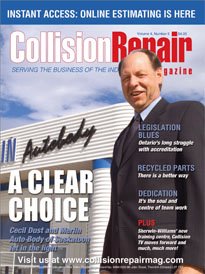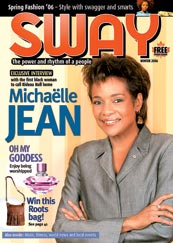
The first issue of
Know is coming out of Victoria in January, intending to make science fun for children between six and nine years old. It's tagline says it's "the science magazine for curious kids".
Know magazine editor Adrienne Mason, a biologist and author of 20 books for kids and adults, says children want to know about the science involved in chewing gum and other things
sciency. "Young children are innately interested in everything around them," says Mason. She edits the 6-times-a-year magazine from her home in Tofino, on Vancouver Island.
The magazine is published out of an office in Victoria by the same company that produces
Yes magazine, a science book for older children. Publisher David Garrison says there has been a clamour among grandparents and parents for something for younger kids and grandkids.
Yes, which is 10 years old, has 23,000 subscribers, but started out with 300.
Know, which hasn't even yet published, has 4,000 advance subscribers. A subscription is $22 a year.
The challenge for
Know magazine isn't finding interesting topics, but in being able to communicate with the young readers, says Mason. Reading ability between six and nine varies widely.
"We're definitely trying to present material in a lot of different ways," says Mason. The approach ranges from a comic strip with little text to articles that are a bit harder to read. "We don't want to dumb things down."
Each issue will have a theme -- the inaugural January issue is about ice and snow with forthcoming issues about the solar system, beach life, light and colour, dogs and balloons.
Read more about it
here.
 [Note: This post has been corrected and updated.] For the second time, out of 5 straight nominations, Ascent magazine has won one of Utne magazine's coveted Independent Press Awards. The Montreal-based yoga magazine's win is announced in the just-published January-February issue of Utne. Every year, the staff of the magazine troll through some 1,300 independently published magazines to come up with a short list. Ascent has had a lock on nominations in the "Spiritual Coverage" category since 2000, and it was in that category it won this time (as it did in 2003). It was one of two Canadian magazines to win, including the Toronto-based Shameless in the Personal Life category, although New Internationalist, a British magazine with a Canadian franchise, was also a winner.
[Note: This post has been corrected and updated.] For the second time, out of 5 straight nominations, Ascent magazine has won one of Utne magazine's coveted Independent Press Awards. The Montreal-based yoga magazine's win is announced in the just-published January-February issue of Utne. Every year, the staff of the magazine troll through some 1,300 independently published magazines to come up with a short list. Ascent has had a lock on nominations in the "Spiritual Coverage" category since 2000, and it was in that category it won this time (as it did in 2003). It was one of two Canadian magazines to win, including the Toronto-based Shameless in the Personal Life category, although New Internationalist, a British magazine with a Canadian franchise, was also a winner.












